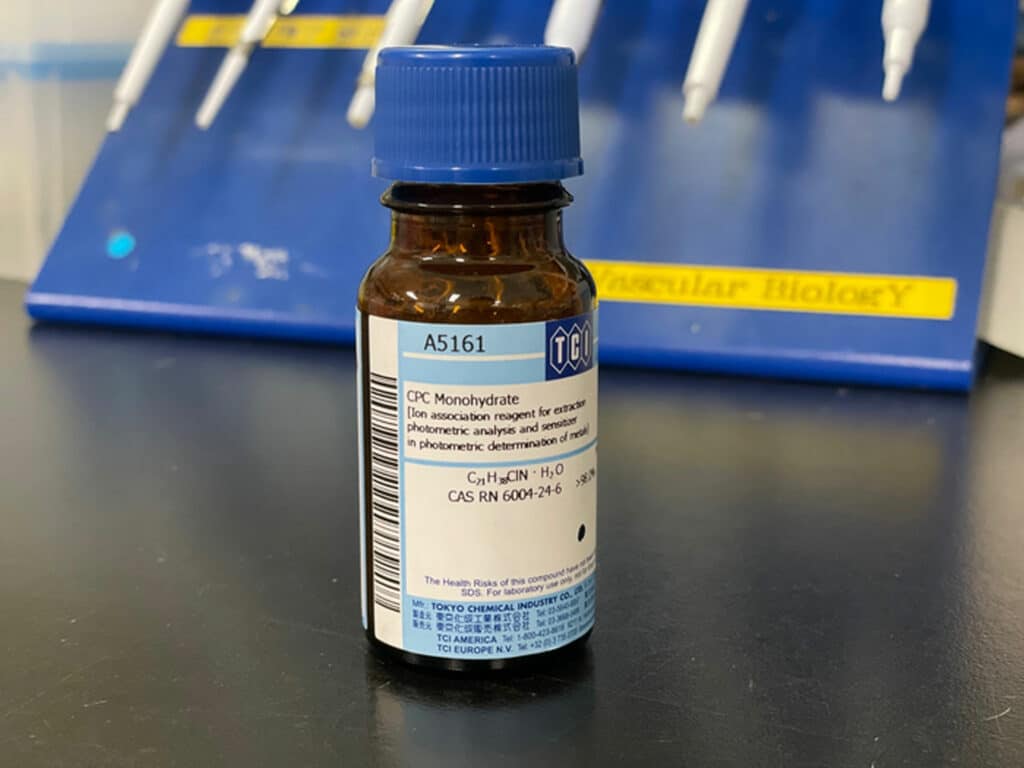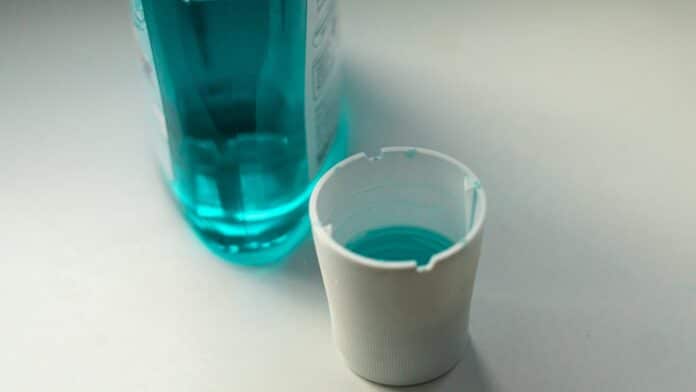SARS-CoV-2, the COVID-19-causing virus, could spread from the oral and nasal cavities—the mouth and the nose. Along with infecting the cells of the respiratory tract, the virus also infects the cells of the lining of the mouth and the salivary glands.
A new study by Hokkaido University suggests that a component found in mouthwashes could have an antiviral effect on SARS-CoV-2. The study has shown that low concentrations of the chemical cetylpyridinium chloride, a component of some mouthwashes, have an antiviral effect on SARS-CoV-2.
Mouthwashes have several antibiotic and antiviral ingredients that fight oral bacteria. It has been demonstrated that cetylpyridinium chloride (CPC) reduces the viral load of SARS-CoV-2 in the mouth, primarily by disturbing the lipid membrane enclosing the virus. Other substances have effects similar to those of CPC, but CPC has the benefit of being tasteless and odorless.
The effects of CPC in Japanese mouthwash were of interest to scientists. Mouthwashes in Japan typically contain a fraction of the CPC compared to previously tested mouthwashes. They tested the effects of CPC on cell cultures that express trans-membrane protease serine 2 (TMPRSS2), which is required for SARS-CoV-2 entry into the cell.

They discovered that 30–50 g/mL of CPC decreased SARS-capacity CoV-2’s for cell entrance and infectivity within 10 minutes of treatment. It’s interesting to note that CPC-containing mouthwashes outperformed CPC alone.
They also showed that saliva did not alter the effects of CPC. Most significantly, they tested four variants of SARS-CoV-2—the original, alpha, beta, and gamma variants—and showed that the impact of CPC was similar across all strains.
This study shows that low concentrations of CPC in commercial mouthwash suppress the infectivity of four variants of SARS-CoV-2. The authors have already begun assessing the effect of CPC-containing mouthwashes on viral loads in the saliva of COVID-19 patients. Future work will also focus on fully understanding the mechanism of effect, as lower concentrations of CPC do not disrupt lipid membranes.
Journal Reference:
- Takeda, R., Sawa, H., Sasaki, M. et al. Antiviral effect of cetylpyridinium chloride in mouthwash on SARS-CoV-2. Sci Rep 12, 14050 (2022). DOI: 10.1038/s41598-022-18367-6
